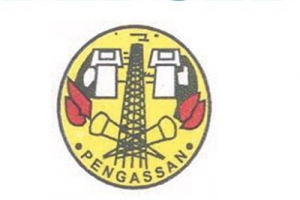The Petroleum and Natural Gas Senior Staff Association of Nigeria (PENGASSAN) has advised political office holders and politicians to prune the number of aides working with them.
Comrade Francis Johnson, the President of the association, made the call in an interview with the News Agency of Nigeria (NAN) in Abuja on Tuesday.
Johnson, who was reacting to the austerity measures announced by the Federal Government in response to the falling price of crude oil, the major revenue earner for the country, said such measure had become imperative to rescue the economy.
He said that a reduction in the number of aides was a more meaningful measure aimed at cutting cost rather than imposing “unnecessary’’ austerity measures on Nigerians.
“The huge number of political appointees as aides to the Presidency, the ministers, state governors and their commissioners is simply wasting national resources and putting pressure on the economy.’’
PENGASSAN also cautioned the Federal Ministry of Finance against stifling the economy through non-release of funds for development.
The union said it favoured tightening the noose around all avenues of leakage and wastage.
Instead of introducing austerity measures that would further impoverish and inflict more pains on the people, governments at all levels should consider reducing to the barest minimum the numbers of aides, Johnson said.
“If we are looking for ways to cut cost, I think the first place to focus is in the direction of reducing the number of Presidential aides from 133 to the barest minimum of about 20.
“The huge amount we spend in paying these aides can be used on developmental projects and boosting of the nation’s economy.
“The governors, ministers and federal and state legislators should also be made to reduce their aides to a sizeable number that our economy can bear and whatever is got from this exercise should be used in supporting and bolstering the economy.”
He also advised the government to develop other sectors along with the extractive and manufacturing sectors in order to diversify the national economy from its monolithic dependence on oil and gas.
According to him, it is only the development of other minerals, agriculture and the manufacturing sectors that will help Nigeria to escape the challenges posed by the dwindling global oil price.
The president noted that the price of oil was critical to the world economy, given that oil was the largest internationally traded good both in volume and value terms.
“The dwindling oil price is now raising palpable fear due to the over dependence on oil and gas exports for over 90 per cent of our country’s foreign exchange earnings.”
He noted that the excess crude account created to cushion the economy at difficult times like this had been depleted.
The president attributed the oil price drop and its effects on the Nigerian economy to a number of factors, including the lack of foresight and strategic plan towards local refining and petrochemical activities.
“We do not have significant refining capacity and we spend crude oil earnings to import refined petroleum products for local consumptions.
“The four state-owned refineries are not able to meet our local demand for petroleum products due to some avoidable and unavoidable factors.
“These are crude oil theft, pipeline vandalism, lack of formidable legal framework such as the Petroleum Industry Bill (PIB), and huge importation of refined products.”
He, however, called on the government to do the needful by carrying out the Turn Around Maintenance (TAM)of refineries and ensure adequate and regular supply of crude to the existing refineries.
“The PIB which provides legal and regulatory frameworks as well as comprehensive guidelines for the operations and activities in the oil and gas sector is stuck in the National Assembly.
“There is the need for the legislators to consider the bill and not waste time in passing it into law, so as not to further delay or debar investment decisions that can spur development in the nation’s oil and gas sector.”
The union leader advocated for necessary incentives to facilitate the private sector investments in the upstream, midstream and downstream sectors of the oil and gas industry.
Also, Comrade Igwe Achese, the National President, Nigeria Union of Petroleum and Natural Gas Workers (NUPENG), said the austerity measures were not necessary.
Achese instead urged governments at all levels and the national Assembly to wake up to their responsibilities
Copyright Ships & Ports Ltd. Permission to use quotations from this article is granted subject to appropriate credit given to www.shipsandports.com.ng as the source.

